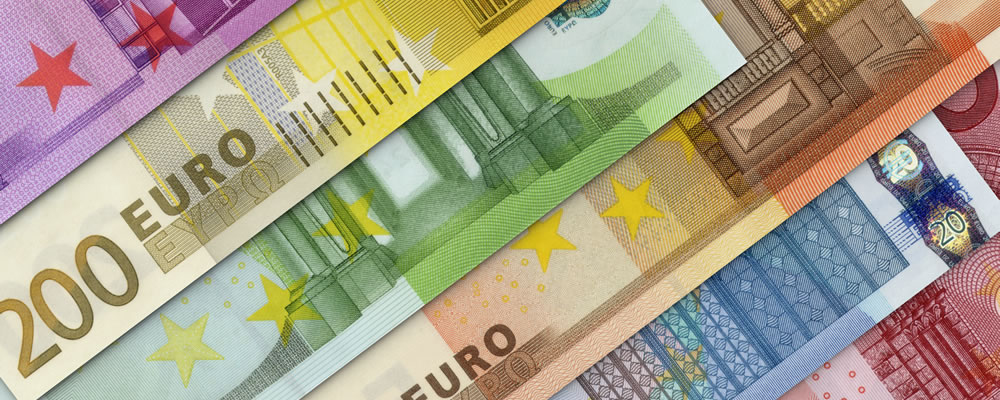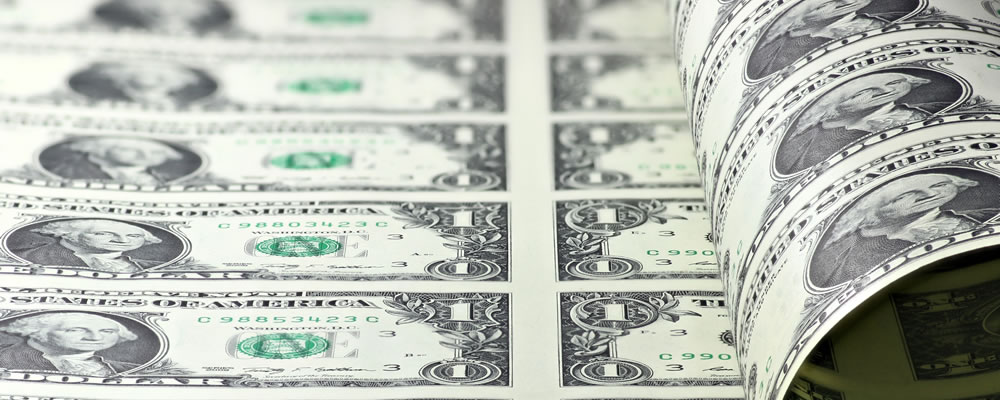Donald Tusk, European Council President, has unsettled GBP exchange rates today by stating the UK’s only choice is ‘Hard Brexit or no Brexit’.
- ‘Hard Brexit’ comments unsettle GBP – No single market access without free movement, states Tusk
- EUR weakens as Tsipras demands debt relief – Argument between IMF and Eurogroup could start again
- USD mixed ahead of Fed conference – Will Janet Yellen offer a more hawkish policy outlook?
- GBP, EUR, USD exchange rate forecast – Key US data could boost Feds hike bets
The Pound has nonetheless been able to register minor gains versus the Euro, thanks to a reignited debate over the need to provide debt relief to Greece.
GBP Ends Week Lower vs EUR and USD
17.00, 14/10/2016: As the close of trade approaches, it has become clear that the Pound has been unable to recover any ground versus either the Euro or the US Dollar. GBP EUR opened on Monday above 1.11, but is now trending around 1.10, while GBP USD has fallen from 1.24 to 1.21.
Tusk ‘Hard Brexit or No Brexit’ Comments Unsettle Pound (GBP)
Poor construction data has shaken the Pound today, after output was revealed to have fallen by -1.5% in August; significantly disappointing forecasts of 0.2% growth. The previous month’s zero output figure was revised upwards to 0.5%. On a yearly basis, construction output increased by 0.2%. While an improvement upon July’s decline of -1%, economists had forecast construction activity would have grown by 1.5%.
According to ONS statistician Kate Davies, the drop in output is not linked to the Brexit and the monthly output figures can often be particularly volatile;
‘Construction output has fallen back quite sharply in recent months and contracted by 1.5% in August. As the fall this month is led by infrastructure, it seems unlikely that post-referendum uncertainties are having an impact. Monthly construction data can be quite erratic, though, so we would warn against trying to read too much into one set of figures.’
Also weakening sentiment for the Pound today are comments from European Council President Donald Tusk, who has claimed that the UK has only one choice; between ‘Hard Brexit’ or ‘no Brexit’. Tusk once again reiterated the claims made by numerous EU officials that the four essential freedoms of the single market – movement, capital, goods and people – cannot be unlinked, further crushing the UK’s hopes of retaining single market access and curbing immigration. The President explained that;
‘This approach has definitive consequences, both for the position of the UK government and for the whole process of negotiations. Regardless of magic spells, this means a de facto will to radically loosen relations with the EU – something that goes by the name of hard Brexit.’
With the Prime Minister and multiple Conservative MPs having claimed that the referendum vote was overwhelming a mandate to clamp down on immigration, it seems increasingly likely that the UK is heading out of the single market.
The Pound is on mixed form overall, holding below opening levels versus the US Dollar, although weakness in the Euro has allowed the Pound to edge higher.
Euro Exchange Rates Weaken as Tsipras Reignites Greek Debt Relief Debate

Greek Prime Minister Alexis Tsipras has potentially reawakened tensions between Eurogroup creditors and the International Monetary Fund (IMF) after demanding debt relief for his country. The prospect is a thorny one that has driven a wedge between the two organisations. The International Monetary Fund (IMF) is only an advisor in the latest bailout package, refusing to provide capital as it claims Greece’s debt levels are not sustainable without some form of debt relief. Eurogroup creditors, lead in particular by German Finance Minister Wolfgang Schauble, have argued against such measures.
The issue has already complicated the bailout package more than once, with Greece nearly defaulting on its repayments after a failure to agree on debt relief delayed a tranche of bailout funds. The matter was partially resolved with an agreement to provide debt relief in 2018, although this was seen by many as simply ‘kicking the can down the road’ in order to appease both parties and unlock the latest round of funding for the stricken Hellenic nation.
Tsipras has gone on the attack in an attempt to shore up flagging support for his party, Syriza, which was initially elected to power on the back of strong anti-austerity claims. Over time Tsipras has been forced to move further and further away from the promises he made to the electorate as Eurogroup demands harsher reforms and higher taxes as conditions for bailout funds. However, Tsipras has now hit back, claiming at the Syriza national congress that;
‘The July [bailout] accord is clear. As we abide by it, despite the costs, we expect our partners to keep their end of the deal. There is no more “we will see”.’
He also noted that sentiment in the German parliament was turning in his favour, stating;
‘This must be comprehended by the German government. The Greek crisis must come to a definitive end. Europe cannot bear more turbulence, especially before crucial elections in France, Germany, the Netherlands and the referendum in Italy.’
US Dollar Mixed Ahead of Key US Data, Speech from Fed Chair Janet Yellen

Although on mixed form today, the US Dollar is largely advancing ahead of today’s Boston Federal Reserve Conference and high-profile US data. Speeches from Eric Rosengren and Fed Chair Janet Yellen could provide more clarity on the likelihood of tighter monetary policy in December. The recently released Federal Open Market Committee (FOMC) minutes have revealed that September’s decision to freeze interest rates was a ‘close call’. The minutes stated that;
‘Some participants believed that it would be appropriate to raise the target range for the federal funds rate relatively soon if the labour market continued to improve and economic activity strengthened,’ while ‘some others preferred to wait for more convincing evidence that inflation was moving toward the committee’s 2 per cent objective.’
According to the minutes, Yellen’s argument for a rate hike was what ultimately swayed policymakers to back holding rates at their current levels.
A strong rise in Chinese consumer prices and the first producer price growth in over four years has helped to allayefears of a hard landing for the world’s second-largest economy. This lowers one of the barriers between the Fed and a December interest rate hike, boosting the US Dollar, although the resultant risk-demand caused by the figures has seen the ‘Greenback’ weaken against high-risk currencies.
GBP EUR, GBP USD Exchange Rate Forecast; Janet Yellen Speech to be Closely Watched
There is no UK or Eurozone data left on the calendar today. Market focus is likely to remain on the upcoming US data. Advance retail sales figures for September are expected to have grown 0.6% after a -0.3% decline in August. The University of Michigan confidence index for October is predicted to tick marginally higher to 92.
With Janet Yellen’s influence over the FOMC clearly highlighted by the latest meeting minutes, investors will be hoping that she adopts a more hawkish tone at today’s Boston Fed Conference. Continued dovish rhetoric from Yellen will likely weigh on rate hike bets on trader fears her caution could sway other policymakers, even if they are more inclined towards a hike. A more positive outlook from Yellen would therefore suggest that, come December, the Fed Chair will lead the FOMC to vote for tighter monetary policy.
Current GBP, EUR, GBP Interbank Rates
At the time of writing, the Pound Euro (GBP EUR) exchange rate was trending in the region of 1.10, while the Euro Pound (EUR GBP) exchange rate traded around 0.90.
The Pound US Dollar (GBP USD) exchange rate was trending in the region of 1.22, while the US Dollar Pound (USD GBP) exchange rate traded around 0.81.
The Euro US Dollar (EUR USD) exchange rate was trending in the region of 1.10, while the US Dollar Euro (USD EUR) exchange rate traded around 0.90.



